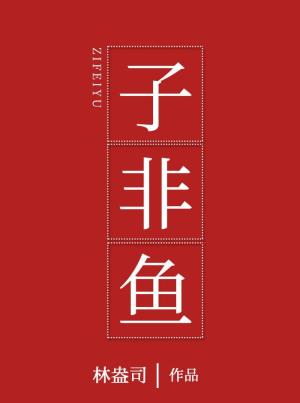
Zi Fei Yu

219 Chapters 93 Extras
Description
“I know he is hypocritical and cunning, inconsistent inside and out, ruthless, selfish and willful, and possessive, but that doesn’t stop me from liking him.” — Lin Fei
*
As the most popular romance novel of the year, “Under the Rose” features its most intense rivalry not between the female lead and the supporting female character, but between two male supporting characters.
The “White Moonlight” Lin Fei is the male god of the campus, whom the female lead has had a secret crush on for years. He is aloof, indifferent, handsome, and noble, looking down on everyone else, and excels academically, consistently holding the top position in his grade. He later becomes a successful entrepreneur and a regular on the Forbes list, representing the eternal moon in the female lead’s heart.
The “Cinnabar Mole” Ji Leyu is the dark antagonist who pursues the female lead but never wins her over. He is ruthless, two-faced, and hides malice behind his smile. When he goes crazy, no one can stop him, especially with the powerful Ji Group backing him, making him even more arrogant and domineering. Ultimately, he becomes the mosquito blood in the female lead’s heart.
After being reborn back to her high school days, Song Qiang decides that this time, the moment she sees Ji Leyu, she will run away and never give him any chance to get close to her again.
However, before she has the chance to run, she sees Lin Fei standing beside Ji Leyu.
They go to school together, eat together, go home together, and participate in extracurricular activities together.
Song Qiang even sees Ji Leyu pulling Lin Fei by the collar to kiss him.
Song Qiang: !!! Let go of her male god!!
Just as she is about to rush over, she is shocked to see her male god lower his head and kiss Ji Leyu on the lips.
Song Qiang: ????
What happened to being aloof and heartless?!
Male god, what is going on?!
Song Qiang cautiously observes in secret and is horrified to discover that her former pursuer and the one she used to pursue are now together!
Her “White Moonlight” and her “Mosquito Blood” are together!
Song Qiang: …This world seems a bit off.
***
Song Qiang confirmed that Lin Fei and Ji Leyu were together. She didn’t want her male god to get hurt, so she quietly reminded Lin Fei, “Do you know that he’s not as well-behaved and cute as you think? He’s much more complicated than you imagine!”
Lin Fei’s tone remained as calm as ever, “I know.”
“I know he’s hypocritical and cunning, inconsistent inside and out, ruthless, selfish and willful, and possessive, but that doesn’t stop me from liking him.”
“To me, he is the most well-behaved and adorable.”
How could he not know?
Since the age of six, Lin Fei had known what kind of person Ji Leyu was.
But he loved this imperfect yet irreplaceable Ji Leyu in his heart.
***
Ji Leyu leaned against Lin Fei, rubbing his head against Lin Fei’s shoulder and whimpering, “Come on, comfort me.”
Lin Fei put down his book, turned, and kissed him on the lips, then patted his hair. “Good boy.”
Ji Leyu hugged him tightly, like a rose with its thorns retracted.
— Dazzlingly brilliant, yet blooming for only one person.
He was his bottom line, he was his devotion.
—
Lin Fei is the top, Ji Leyu is the bottom.
The structure of the first sentence of the synopsis is inspired by “The Painted Veil.”
—-
《面纱》 (The Painted Veil) is a novel by W. Somerset Maugham, published in 1925. The story is set in the 1920s and revolves around the tumultuous marriage of Kitty Garstin and her husband, Walter Fane, a bacteriologist. The plot thickens when Walter discovers Kitty’s infidelity and takes her to a cholera-infected region in China, where he works. The novel explores themes of love, betrayal, redemption, and the complexities of human relationships.
The title “The Painted Veil” refers to a line from Percy Bysshe Shelley’s sonnet “Lift Not the Painted Veil,” which suggests the idea of not looking too closely at life’s illusions or the facade people present to the world.
—-
The phrase “子非鱼” (zǐ fēi yú) originates from the classical Chinese text “Zhuangzi” (also known as “Chuang Tzu”), which is a foundational work of Daoist philosophy. This phrase is part of a longer passage that involves a dialogue between Zhuangzi (also known as Zhuang Zhou) and his friend Huizi (also known as Hui Shi). The dialogue goes as follows:
Zhuangzi and Huizi were strolling along the Hao River when Zhuangzi said:
“The fish are swimming so freely, this is the happiness of fish.”
Huizi replied:
“You are not a fish, how do you know the happiness of fish?”
Zhuangzi responded:
“You are not me, how do you know that I do not know the happiness of fish?”
The phrase “子非鱼” directly translates to “You are not a fish.” It is Huizi’s argument challenging Zhuangzi’s assertion about knowing the happiness of fish. The broader philosophical implications of this dialogue revolve around the nature of knowledge and understanding, especially concerning different perspectives and subjective experiences.
- I am the Father of the Villain (Prequel)
| Date | Group | Release | |
|---|---|---|---|
| Jul 3, 2024 | Chrysanthemum Garden | ||
| Jun 25, 2024 | Chrysanthemum Garden | ||
| Jun 20, 2024 | Chrysanthemum Garden |